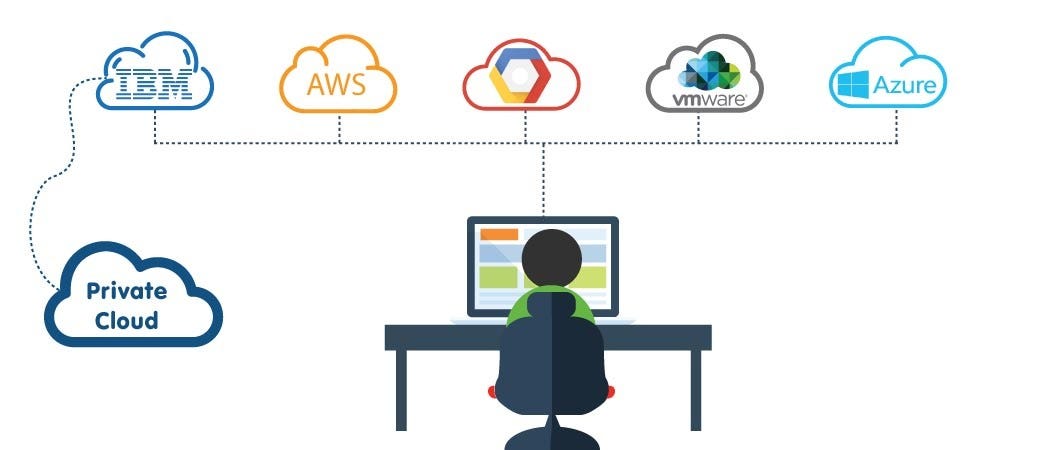- Oracle acquired Sun Microsystems
- Microsoft acquired GitHub
- Dell acquired VMware
How disruptive can a Purple Hat really be? VMware survived being acquired by Dell quite well... will RedHat have the same luck, or not? What I know for sure is that the RedHat employees are panicking right now...
Sure, 3k billion is a big sum, but also a bold move by IBM on the conquest to the Multi-Cloud market. Combined we're looking at (to name a few):
- Ansible for the Automation
- OpenShift, as the best of breed PaaS based on Kubernetes
- CloudForms as a potential CMP (I wonder how this will work out...)
- Watson for all AI/Machine Learning related
- IBM Cloud as a Public Cloud platform
Is this a winner combo? Or do other Hybrid Cloud promoters, like Cisco and VMware have equally good lock-in-free proposals?
As a Hybrid Cloud and DevOps advocate, and a European CTO, I've had the experience to "casually chat" to many European companies about their Cloud strategy. Two things are evident:
- The buyer is changing, Multi-Cloud is an APPLICATION strategy, not the infrastructure strategy (read more about this here).
- Companies don't really know who to trust, as what they're being told by various vendors and providers is not really coherent. This makes is pretty difficult to actually build a Cloud strategy (don't get me started on CEOs who'll just tell you "We've adopted Cloud First", and actually think they have a cloud strategy).
Due to all this:
- IBM and RedHat, as software companies, will be able to get to the Application market.
- Neither of the two can do Infrastructure as well as VMware & Cisco.
How important is this? Very! And here is why.
Cisco has:- Cloud Center, a true application oriented micro-services ready CMP, Public Cloud and Automation Tool agnostic, equipped with the right Benchmarking and Brokering tools, that integrates quite well with the infrastructure, and workflow visibility platforms.
- ACI and Tetration, that enable the implementation of coherent and consistent Network and Security Policy Model across multiple private and public clouds, along with the workload visibility.
- HyperFlex and CCP, providing enterprise production-ready, lock-in-free Kubernetes solution on a Hyper Converged infrastructure.
- AppDynamics and Turbonomic, a true DevOps combo for the Day 2 we're all fearing in the Cloud, letting the application architects model their post-installation architecture, and monitor the performance of each element, latency between different elements, and assure the optimal user experience.
VMware has:
- vRealize Automation, the best of breed Automation and Orchestration Hybrid Cloud ready platform.
- PKS and VKE, KaaS platforms that provide the enterprise production-ready Kubernetes solution, with a fully prepared Operations component, in both - private and public cloud.
- Wavefront, application visibility tool running on Containers, designed with Cloud applications and Micro Services in mind, with just insane performance.
- NSX, including the full SDN stack in both, Data Center and Cloud, with probably the best API (both documentation and usage wise).
- Partnership with AWS, Azure, GCP and IBM, to leverage the most demanded Hybrid Cloud use cases in a "validated design" fashion.






